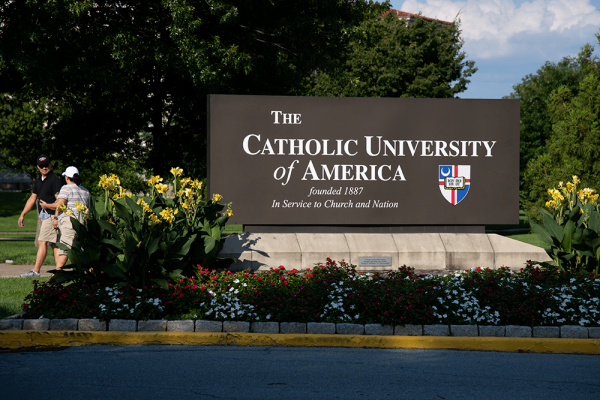This demands, indeed, a simple-mindedness quite beyond the possibilities of the human being. Complexity is our only safety and love is the only key to our maturity.
And love is where you find it.―James Baldwin
It is the new year and I have not slept well in days. Between book pages and Netflix shows, I have written audacious goals of healthy meals, early bedtimes, and checking the weight of my body — but that body carries in it a fantastic amount of terror. I am afraid: for this country, for myself, for my family. I am afraid for all of us.
I have tried to find ways to speak about this country and its failure — failures that we have tried to preach about and write about and pray about; failures we sometimes try to ignore to salvage what little peace human beings can be afforded. This week, I witnessed the same terror so many of us did. I witnessed it all, and I am afraid, and I am angry.
“Trump incited a mob to storm the Capitol and fled the white house,” my friend texts me. I read over her text, and I read it again. “What? Really?” I respond as I pull up the news on Twitter. “The US Capitol is on lockdown,” she says, “They are evacuating the Capitol right now.”
I pause. I look around the coffee shop where I have been writing about all the ways the country has failed — about all the ways that white American men and white American women and white American children live and hate and destroy in the name of themselves, and in the name of their god, and in the name of their country, and about the ways that Black American men and Black American women and Black American children have not. I try to write words, but I stumble. I have just seen the videos, and I hear in those voices such deep, profound hatred.
I see a photo of a white American man. He is in Speaker Nancy Pelosi’s office. He is chilling. He has stormed the Capitol, he has heard the call of the president, and he sits in her chair, holding a phone in his hand. He is at home. That is what is most disturbing: He knows that there is no place that his body cannot travel and not be protected. I look at the image and am amazed at the audacity of terrible white American men and at the ways we protect them. They can be terrible in the most American ways possible and still be able to sit, chill, be on a cell phone, be photographed, and be alive. His life is defended while our lives are ruined.
“This is such a failure,” I tell myself. Trauma makes me want to not to believe the things that I am seeing, the things I am reading, and the things I feel deep in my stomach — things that make my palms sweaty, and my body hot and full of rage, terror, and sadness.
But this is not a failure. This is the country that has been chosen for us. President Donald Trump and his supporters are but a reflection of the worst of American tradition. A country that meets people fighting for dignity and justice with tear gas and bullets, but meets people attempting a violent coup with apathy and silence is one that is loud in its declaration that it cares more about white supremacy than it does about democracy. It is a country that dares not face itself nor the terror it created. It dares not deal with the rot beneath the surface because, as Sen. Ben Sasse (R-Neb.) so audaciously declared, it is "the most exceptional nation in the history of the world."
This is a powerful and persistent lie. It is a lie that keeps the country proud, singing songs, declaring blessings, and never doing anything to stop the terror that destroys us. If they invaded the U.S. Capitol with Confederate flags, a noose, and other symbols of American hatred and were simply escorted out of the building, what does that say about a country that allows it?
This is a consequence that has been years in the making. At every moment in American history, historian Carol Anderson writes, this country has had chances to deal with white rage that “has undermined democracy, warped the Constitution, weakened the nation’s ability to compete economically, squandered billions of dollars on baseless incarceration, rendered an entire region sick, poor, and woefully undereducated, and left cities nothing less than decimated.”
Yet it has not. And here we are: terrified, restless, more sick, less equal, and more fractured. It is not simply that these white American men and these white American women and these white American children fear their country and their god is being taken from them. It is that they have been told for generations and in sophisticated ways that this country belongs to them —that Black advancement, Black citizenship, and Black survival threatens their very existence. They have been told that Jesus desires to protect white supremacy and desires Black destruction. They have been told that this country is Christian, loving, and just — that the country is innocent, despite what it has created: those who do not know love or justice, but who do know violence. They have been told all these things and they have believed it.
It is a profound delusion. It is a delusion that damns us. It is a delusion we can and must be liberated from if there is any hope for us, for our country, for our children, and for our future.
I have not slept well in days. I wake up at 4:48 a.m. and I turn on James Baldwin’s 1987 interview with Mavis Nicholson as I make coffee. MSNBC plays in the background as I take a sip. I see the images from Wednesday and I am reminded of terror. In the interview, Baldwin cracks a smile. His teeth show. His mouth closes. He becomes resolute.
“Are you still in despair about the world?” Mavis asks him.
“I have never been in despair about the world,” Baldwin quietly responds. “I’m enraged, but I don’t think I’m in despair.”
I take another sip from my coffee. I want to feel love. I think I do, but I don’t. I want to feel hope. I think I do, but I don’t. I see more images of terrible white American men. I see a Confederate flag. I see a noose.
“Black people need witnesses in this hostile world which thinks everything is white,” he says.
I listen to Baldwin. I read Toni Morrison’s words on Jimmy’s courage: “to live life in and from its belly as well as beyond its edges, to see and say what was; to recognize and identify evil but never fear or stand in awe of it.”
My son comes downstairs. I look at him, his small Black body, his smile as he plays. “Daddy,” he says. He does not know Daddy is sad. Daddy is terrified. He does not hear my silent prayers over his body and over his future. I know the spirit of the ancestors is in my bones. The spirit of the Lord is upon me. I know that one day, we shall shake the foundations together.
Got something to say about what you're reading? We value your feedback!







